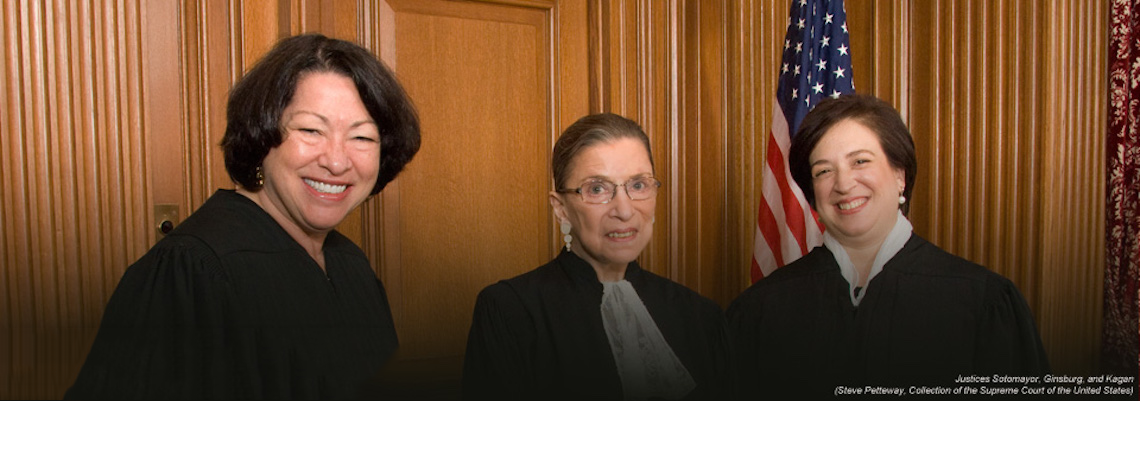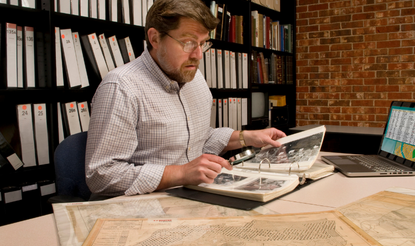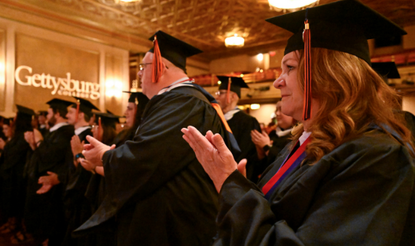Creating Opportunity: My Fight for Social Justice and Advice for Young Women Today
by Harriet Karr-McDonald
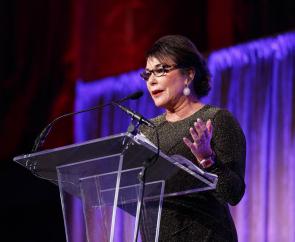 I never expected to be a leader.
I never expected to be a leader.
It’s hard to imagine now, but I grew up during a time when there were few opportunities for women in the workplace, other than being a man’s secretary.
Unlike most of my peers, I was extremely fortunate to grow up in an environment where women were considered capable, smart, and equal. My grandmother was an early feminist—she ran an intellectual and artistic salon, and even made her own pants! She instilled that sense of independence in my mother, who worked her entire life, including as a stenographer at the Nuremberg trials. But also very important was my father’s attitude toward women. He deeply respected my mother and supported her choice to have a career.
I also grew up surrounded by a strong sense of social justice. Several members of my family were killed in concentration camps during the Holocaust; those horrors were never far from my mind. Looking back, I can see that was the catalyst for my lifelong commitment to righting social wrongs.
I started my career as an actress and a screenwriter in Los Angeles. To me, writing is one of the most powerful ways to create a more just and equal society, and I worked on several projects about civil rights issues and figures, including Martin Luther King, Jr.
In 1987 I decided to turn my attention to homelessness in New York City. Things had reached a crisis point there: human beings were mistaken for trash on the sidewalks; the crack epidemic was devastating entire communities; people were denied fundamental rights and dignity; and no viable plans were being offered to break the cycle of poverty, homelessness, and incarceration in which so many had found themselves.
My hope was to illuminate the crisis by telling the story of a young woman named April Savino. April, who had been homeless since the age of fifteen, was one of the hundreds of homeless women and men who lived below Grand Central Terminal’s train tracks.
I spent a week with April at Grand Central, getting to know her and many of the others who called the terminal home. April was extremely bright and had enormous energy.
She and I decided to return to California together, where April could take her life in a different direction. But on the day we were due to fly to California, she hid from me and I had to return to Los Angeles without her.
Not long after, I received a phone call: April had killed herself with a gun she had tried to sell in order to buy drugs. I was devastated. I had so desperately wanted to help April realize the enormous potential I saw in her. Instead, I was on my way to New York to attend her funeral.
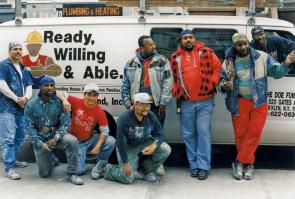 Afterward, I introduced myself to the man who delivered April’s eulogy, George McDonald. I learned that George had spent the last several years handing out food and clothing to the homeless, including April, at Grand Central. It may sound incredible, but within a week George and I decided to get married and dedicate ourselves to helping the homeless rebuild their lives. Together, we founded The Doe Fund’s Ready, Willing & Able program in 1990.
Afterward, I introduced myself to the man who delivered April’s eulogy, George McDonald. I learned that George had spent the last several years handing out food and clothing to the homeless, including April, at Grand Central. It may sound incredible, but within a week George and I decided to get married and dedicate ourselves to helping the homeless rebuild their lives. Together, we founded The Doe Fund’s Ready, Willing & Able program in 1990.
Getting Ready, Willing & Able off the ground was not easy. Most people were extremely skeptical of our plan to provide paid work for people with histories of homelessness, addiction, and incarceration. But we firmly believed in the power of opportunity, the resiliency of the human spirit, and the boundless potential in all of us.
It turned out we were right.
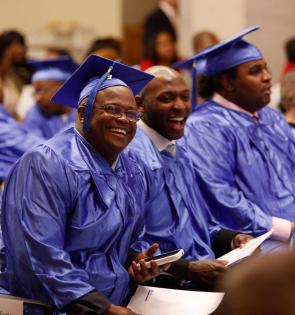 I’ve had the privilege to watch more than 23,000 men change their lives and the lives of their children through this program—through the power of opportunity. Men who were homeless are now thriving. Men who knew only deprivation in their childhood are now great dads. They have achieved things they never thought possible. It is profound to bear witness to these transformations.
I’ve had the privilege to watch more than 23,000 men change their lives and the lives of their children through this program—through the power of opportunity. Men who were homeless are now thriving. Men who knew only deprivation in their childhood are now great dads. They have achieved things they never thought possible. It is profound to bear witness to these transformations.
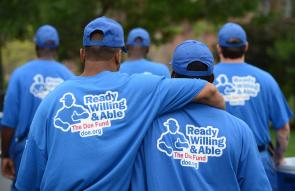 After nearly three decades of this work, I can tell you: there is no better life than one centered around helping others. You may find that fulfillment in education. Or maybe your heart lies with women’s rights or immigration. The important thing is to focus on what inspires a deep passion in you. It may not always be lucrative work, but the rewards are tremendous.
After nearly three decades of this work, I can tell you: there is no better life than one centered around helping others. You may find that fulfillment in education. Or maybe your heart lies with women’s rights or immigration. The important thing is to focus on what inspires a deep passion in you. It may not always be lucrative work, but the rewards are tremendous.
What I want everyone—and young women in particular—to know is that you truly can achieve anything if you have confidence in yourself. Many of the world’s most respected leaders faced years of criticism, doubt, and dismissal from others before they were considered a success. It’s important to be open to advice, but listen to your intuition. Ultimately, only you can know if you are on the right path.
Even when others believe in your vision, leading is not easy. Tough choices fall on your shoulders and your decisions have the power to affect the well-being of others. Yet there are few things more exciting than diving headfirst into a problem and finding fresh solutions to it. It reminds you that you truly can change things for the better.
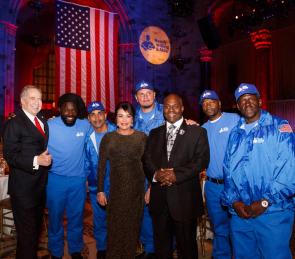 Co-leading Ready, Willing & Able has taught me so many things about leadership. I’d like to share a few of them with you:
Co-leading Ready, Willing & Able has taught me so many things about leadership. I’d like to share a few of them with you:
- Some people may be born to lead, but it is possible for anyone to learn to be a leader.
- There is strength in diversity. Recognize others’ skills and use them to build a great team.
- Women make excellent leaders. They tend to be more empathetic, less ego-driven, and adept at working with others.
- No one has all the answers. Listen to others’ ideas and implement them.
- Recognize and encourage talent. Provide good people with the opportunity to learn and grow.
- Let go of control so that your idea can truly flourish. This can be difficult, but it’s essential.
The leadership landscape has changed significantly since George and I started Ready, Willing & Able more than twenty-five years ago. There are exponentially more women leaders across all areas of business, politics, and academics. We owe these opportunities to the generations of women who fought for them.
But the fight’s not over yet. We have more work to do and more glass ceilings to break. Go on and break them!
Harriet Karr-McDonald is co-founder of The Doe Fund’s Ready, Willing & Able transitional work program for men with histories of homelessness and incarceration.
